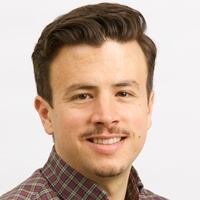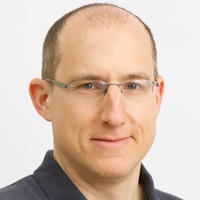Communicating our research is a large aspect of the work we do as scientists, and one of the high points is attending international workshops and conferences. Often these events lead to fruitful discussions and exciting exchanges of ideas. However, as many of us are reconsidering our increased carbon footprint associated with attending international events, we must look for alternative solutions. Combining this dilemma with an overarching need for greater equity and representation of diversity; Florian Altermatt, Ole Seehausen and myself came up with a new framework for conferences: #ABCD_conference
We aim to include:
- research/researchers from ALL Continents
- a panel with a gender BALANCE
- speakers only travel by low CARBON transport or attend via video conferencing
- a panel with DIVERSE backgrounds
The first test!
Late last year, we decided to put our ideas into practice at the first World Biodiversity Forum in Davos, Switzerland. We attempted to bring colleagues together for a special session on Aquatic Biodiversity: state and challenges ahead encompassing the 4 areas of our new framework. As organisers, we reached out to people in and beyond our networks – we had both successes and failures, with several expressions of interest and some declining our invitation. By February, we had secured 12 speakers, representing research carried out on and by researchers from all continents. We had however, failed to secure a 50/50 gender balance (4 female presenters). Speakers gave their talks in person, pre-recorded, and via video link, and our line up represented speakers from diverse backgrounds in science.
Apart from minor technical hiccups, and the challenges of sticking to time, which is so often the case in dynamic conference sessions, the session was a great success. Synergies across continents were realised by including speakers who may have not been brought together otherwise. Audience interaction was encouraged via social media and an online conference question app, however this was often limited. These teething problems could easily be overcome with audience and speakers becoming more familiar with the new approach.
Feedback from participants
The session was well received by participants and speakers alike:
“This meeting format offers opportunities for organisers – it might be easier to curate a program if invited speakers can contribute remotely.” - Dr Francis Burdon (Speaker at an ABCD session, Swedish University of Agricultural Sciences)
“By mixing them up [speaker format] rather than having lots of pre-recorded talks in a row, and by using an online platform for questions, it didn’t feel much different from a normal session” - Dr. Patrick Goymer (Editor in Chief Nature Ecology & Evolution)
Time to embrace ABCD Conferences
At the time we did not realise how quickly the familiarity with these tools (online interactions) would happen. Now, just over 3 months later, we are all working in a time where webinars are a daily occurrence, international conferences are moving online, and our weekly group meetings require a password. Therefore, now is the time to embrace ABCD_conference and interrogate in into our science communication.
I know many of us at Eawag organise and participate in conferences and workshops all over the world. As we have now all made significant efforts to move our work online, we hope you will consider both contributing talks virtually and via pre-record in the future. We also hope you will organise events in the future which include speakers from around the world and represent the diversity we have in science.
For more information on the ABCD_conference approach see our paper (here), follow us on twitter @ABCD_Conference or visit our website: www.abcdconference.com














0 Comments
No comments found!